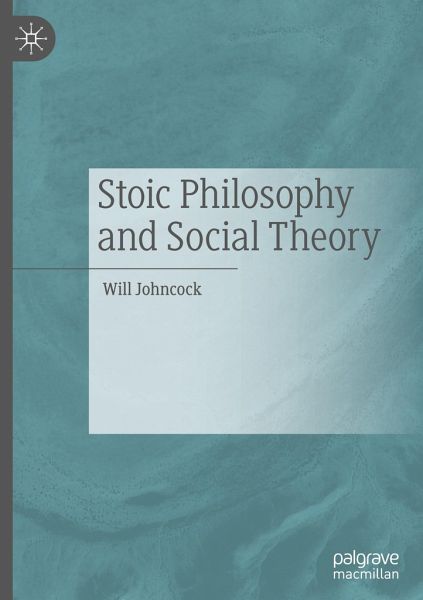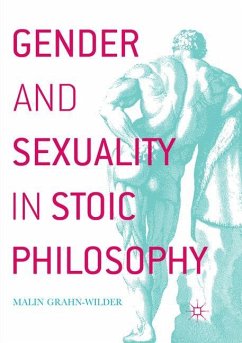
Stoic Philosophy and Social Theory
Versandkostenfrei!
Versandfertig in 6-10 Tagen
68,99 €
inkl. MwSt.
Weitere Ausgaben:

PAYBACK Punkte
34 °P sammeln!
This book puts recently re-popularized ancient Stoic philosophy in discussion with modern social theory and sociology to consider the relationship between an individual and their environment. Thirteen comparative pairings including Epictetus and Émile Durkheim, Zeno and Pierre Bourdieu, and Marcus Aurelius and George Herbert Mead explore how to position individualism within our socialized existence. Will Johncock believes that by integrating modern perspectives with ancient Stoic philosophies we can question how internally separate from our social environment we ever are. This tandem analysis...
This book puts recently re-popularized ancient Stoic philosophy in discussion with modern social theory and sociology to consider the relationship between an individual and their environment. Thirteen comparative pairings including Epictetus and Émile Durkheim, Zeno and Pierre Bourdieu, and Marcus Aurelius and George Herbert Mead explore how to position individualism within our socialized existence. Will Johncock believes that by integrating modern perspectives with ancient Stoic philosophies we can question how internally separate from our social environment we ever are. This tandem analysis identifies new orientations for established ideas in Stoicism and social theory about the mind, being present, self-preservation, knowledge, travel, climate change, the body, kinship, gender, education, and emotions.














